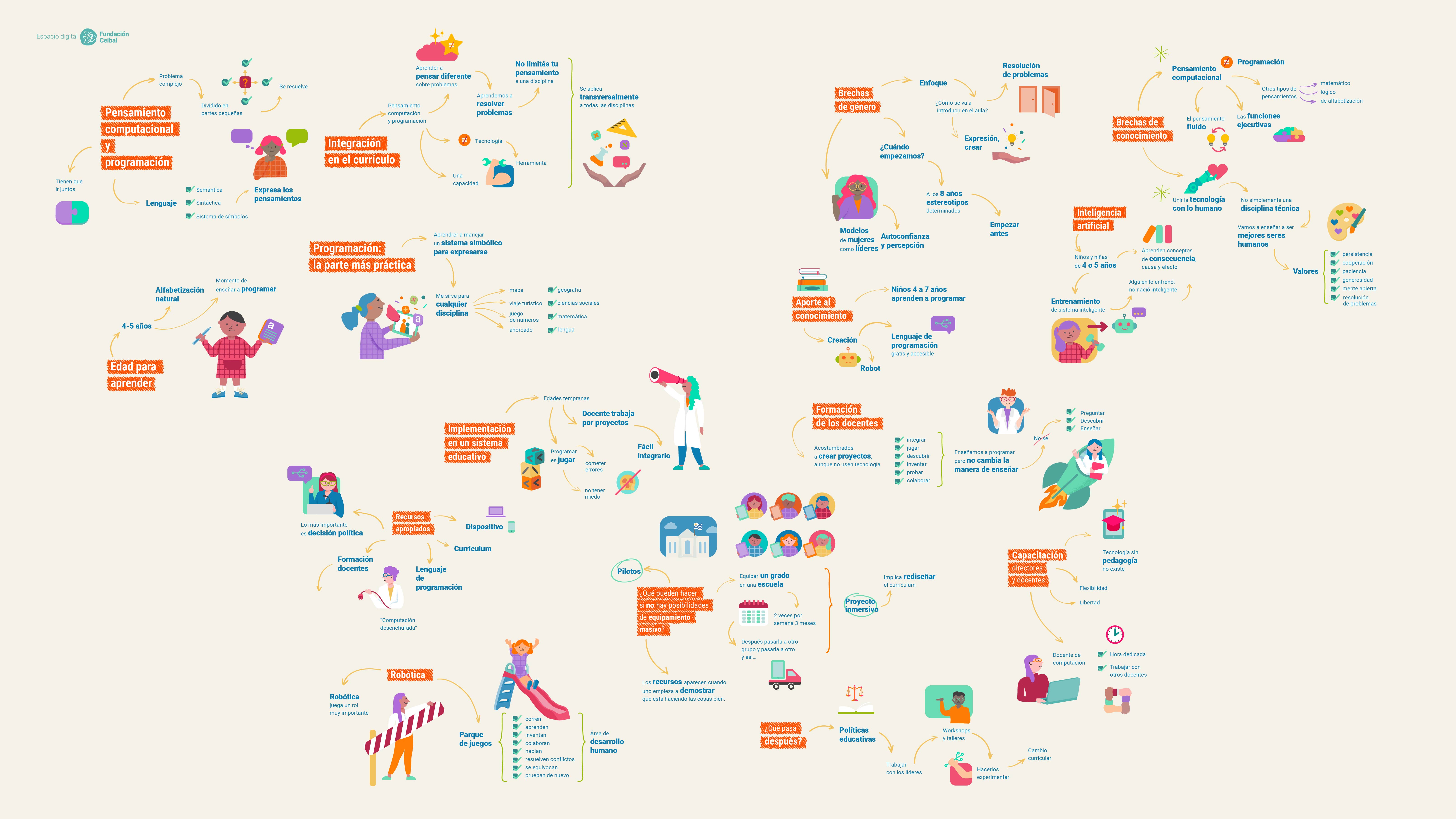News

Computational thinking in early childhood: reflections by Marina Umaschi Bers
As part of International Girls in ICT Day, Ceibal Foundation Digital Space addressed the topic of computational thinking in early childhood with the participation of Marina Umaschi Bers, a PhD in New Technologies for Learning from the Massachusetts Institute of Technology (MIT) and an expert in education and computational thinking. The researcher recommended starting to teach programming to children at an early age, in tune with the beginning of the acquisition of reading and writing. In her view, both literacies can support one another. Umaschi Bers also stressed that her research found evidence of another major advantage: at an early age, gender identification models and their stereotypes have not been established yet, which makes it possible to reduce the enormous gender gap in the area of technology around the world. “By and large, girls and boys know the same, but self-perception changes everything, so it’s very important to start earlier and emphasize models of women who can act as leaders,” she stressed.
Umaschi Bers believes it is necessary to differentiate computational thinking from programming. The former refers to how we think in computer science disciplines, starting with a complex problem that is broken up into simple problems and using logic to understand everything. On the other hand, programming means learning a language; it requires syntax and semantics, a symbolic system that allows ideas to be expressed and turned into action. According to the expert, if reading and writing involve a way of thinking, the language of programming enables a different way of thinking about problems, and this language works for any discipline. “Once children have learnt to think computationally, to solve problems, this cuts across the board,” she stressed.
The expert also believes that it is an advantage that preschool teachers are already familiar with project-based work and think in an integrative way. Another very significant aspect is play: “Programming is playing, making mistakes, not being afraid of things not working out for me.” And even if a teacher at that level has no training in technology, they can easily receive it. “We’re talking about programming languages designed for small children. In a matter of 2 to 4 hours these teachers become experts in programming,” she explained.
Although the ideal situation is for each child to have their own tablet, in the event that a school’s resources are not enough, Umaschi Bers recommended rotation. “Instead of distributing one tablet in each class, let’s put all 20 of them in the same class, and let’s work hard with one class for three months, and then let’s move on to another class,” she said. In her view, the curriculum is very important along with teacher training.
A cocreator together with Mitch Resnik of Scratch Junior — a free piece of software that teaches programming at an early age and is being used by 50 million users around the world —, Umaschi Bers believes that “programming is a playpark” rather than a playpen, which is much more limited. “In the playpark, children run, learn, invent, collaborate, talk to each other, resolve conflicts, fall, make mistakes, try again: all the areas of human development are there,” she said. In her laboratory, she also developed a robotics kit called Kibo which allows programming using tangible wooden blocks with sensors and no need for any computers.
In Umaschi Bers’ view, in countries with high levels of inequality, the important thing is to think of how much that country can do and look at the costs. She mentioned the old days when there were not enough books for everyone but there were travelling libraries that stayed some time in a place where children could read those books, and then they were taken elsewhere. “This is a model that can be brought back and has already been used in some countries; a travelling Maker Space truck with tablets – or any technology – that will go to different places, stay there for three months, and then go somewhere else”. She also considered it essential to focus on education policies in the region and use workshops to work with the leaders in the system – such as Education Ministers – so that they will really understand, by experimenting themselves, what programming and robotics are all about.

